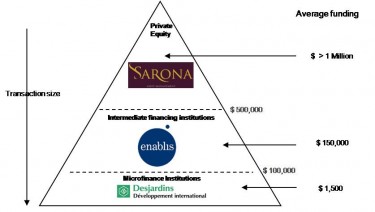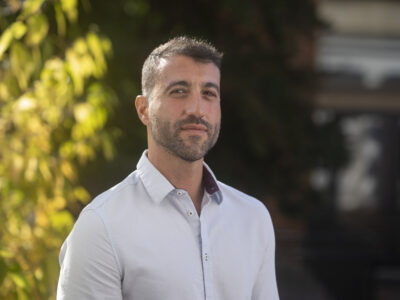Enquanto o Banco Africano de Desenvolvimento anunciou há três dias que vai rebaixar sua previsão de crescimento na África [en], como resultado da turbulência em várias regiões do continente, a taxa de retorno sobre o investimento estrangeiro é mais elevada na África [en] do que em quaisquer outras regiões em desenvolvimento.
Ainda assim, a percepção que muitos investidores mantêm é de que fazer negócios na África é uma proposta arriscada, e que o continente ainda não atingiu o status de uma terra de oportunidades.
Neste vídeo feito pela Organização para a Cooperação Econômica e Desenvolvimento (OCDE), Donald Kaberuka e outros discutem a África como sendo a fronteira emergente dos mercados:
Eric Kacou, em Kigali, opina que o que é necessário para se ter sucesso no continente é uma nova safra de empresários, aqueles que ele chama de “Empreendedores Arquimedes” [en]. Kacou explica o que ele quer dizer com isso:
besides the unusual spark in [their] eyes, combine obsession to succeed and moral purpose so his heart will drive him to the right direction, wherever it is.
Ao lado do reconhecimento de potenciais reais, muitos empreendedores africanos estão apenas combatendo a percepção geral de melancolia e desgraça para o continente. Por exemplo, Donald Bobiash [en], diretor-geral de Relações Internacionais e Comércio Exterior do Canadá na África escreveu o seguinte [en] sobre a conferência Africa Rising (ou em português, África em Ascensão), realizada em Toronto nos dias 14 e 15 de março de 2011:
while the media likes to talk about what is wrong with Africa, we are here to talk about what is right in Africa.
De fato, como apontou uma análise da revista The Economist no início [en] deste ano:
over the ten years to 2010, six of the world’s ten fastest-growing economies were in sub-Saharan Africa
A razão para este crescimento rápido na região não é simples no entanto. Em um relatório do Instituto Global Mckinsey, Acha Leke desvendou as várias razões por trás do crescimento da África:
…yet the commodity boom explains only part of Africa’s broader growth story. Natural resources, and the related government spending they financed, generated just 32 percent of Africa’s GDP growth from 2000 through 2008.The remaining two-thirds came from other sectors, including wholesale and retail, transportation, telecommunications, and manufacturing.
Empresários ilustram essa tendência crescente de aproveitar as oportunidades que o continente apresenta. Tal Dehtiar, dos sapatos Oliberté – uma empresa de fabricação de calçados, com operações na Etiópia e Libéria -, é um deles. Ele escreveu em um blog intitulado Oliberté, This is Africa (ou em português, Oliberté, Essa é a África) o motivo para investir no continente:
we never have and still don't see an Africa that's categorised by negative generalizations. Oliberté believes that with the right partners, each country within Africa has the means to grow and support its people.
Muitos empresários africanos acreditam que, embora os resultados tripartidos -financeiro, social, ambiental- seja a nova palavra da moda para empresas que investem em países que estão em desenvolvimento, um fato que precisa ficar claro é que a África não será capaz de sustentar o crescimento se o financiamento for apenas “microfinanceiro”, e financiando uma mulher com “50 dólares americanos”.
African Entrepreneur explica:
Development, social and micro-finance are not evil. They have their role and do help keep millions out of poverty. But Africa cannot develop by simply trying to not be poor. We need real multi-million dollar financing for African innovation. Is there risk? Of course there is, but no more than funding an online pet shopping site in Silicon Valley.
Ela continua, citando Mfonobong Nseheem em um artigo da Forbes:
Africa has its own Mark Zuckerbergs, Andrew Masons, Mark Pincuses, Larry Pages and Sergey Brins. But it lacks its own Yuri Milners,John Doerrs, Vinod Khoslas and Y Combinators. […] Africans can create hugely successful tech products that will sweep the world off its feet. There are several entrepreneurs out there waiting to break through, but their ideas might never see the light of day because of a lack of seed finance.
A Conferência Africa Rising concluiu-se com as seguintes observações feitas pelo Dr. John Preece [en]:
The overall feeling was one of great positivity and potential, with the general perceptions of Africa not matched by the reality of strong economic growth and exceptional creativity (I was often reminded of a Hans RoslingTEDtalk: Let my dataset change your mindset)”.







